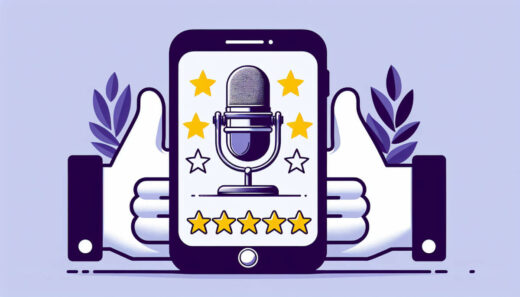Even after years of growth, podcasting remains an evolving medium. Especially when it comes to making money, podcasters continue to experiment with various strategies and approaches. Once your podcast gains a noticeable audience, it is natural to seek opportunities for monetization. In this article, we will explore both traditional and innovative podcasting monetization strategies and techniques.
Sponsorships and Advertisements
Sponsored advertisement is a time-tested strategy to generate revenue from a podcast. In this method, podcasters partner with brands and companies to promote their products or services within podcast episodes. Several advertisement agencies and marketplaces facilitate this process, such as the Spotify Audience Network, PodBean, Podcorn, Authentic Shows, PodGrid, AdvertiseCast, and SiriusXM Media. These intermediaries conveniently match podcasters with advertisers.
However, it is very important to note that excessive or misplaced advertisements are the most disliked element of a podcast and could attract negative reviews from listeners. Therefore, it’s crucial to be mindful and avoid excessive, long, loud, or poorly placed ads in your episode.
Podcast advertisements can be classified as follows for better understanding,
Host-read ads: The podcast host reads a scripted advertisement and seamlessly integrates it into the episode. They are usually backed in the original episode’s recording and cannot be replaced or deleted.
Pre-recorded ads: The advertiser provides a commercial message featuring a voice-over artist. These ads are usually separate from the original episode’s recording and can be placed dynamically at different parts of the episode.
Branded content: The advertiser collaborates with the podcast host to create content that aligns with the show’s theme and promotes the brand.
Affiliate marketing: The podcaster promotes the sponsor’s product or service and earns a commission for each sale or action.
Value-based ad model: The advertiser pays the podcaster a flat rate for promoting their product or service, regardless of the number of downloads or listeners.
Selling Products and Merchandise
In niche podcasts, podcasters can build strong relationships with their audiences and identify their pain points. Subsequently, they can develop tailored solutions or products to directly address these issues. This strategic approach ensures that any offered product or service is well-received by the target audience.
Digital products are best suited to sell with podcasting. They can be distributed online without the need for physical inventory. Some of the digital products are,
- Online courses and tutorials,
- E-books,
- Digital templates,
- Stock images,
- Consulting services,
- Printable digital products,
- Fonts and other design resources,
- Newsletter etc.
Selling merchandise is also a popular way for podcasters to monetize their shows. They can sell t-shirts, mugs, or stickers featuring the podcast logo or catchphrases. However, this will only work if you have a strong and dedicated fan base. Although it will not be a significant revenue stream, the sale of podcast merchandise is primarily about community-building and listener engagement.
Patreon and Memberships
Podcasters can give membership to paying subscribers and offer exclusive content. This can include bonus episodes, ad-free content, early access, or access to older episodes of the podcast. Podcasters can set different membership tiers with varying perks to incentivize listeners to become paying members.
Membership can be a good source of income for podcasters. Members pay a recurring fee, usually monthly or yearly, to access content that is continually being added to and updated. This model provides a more stable and predictable income compared to solely relying on advertisements. It is important to consider the content, pricing, and distribution platforms when creating a successful membership podcast.
Patreon is a popular crowdfunding platform that allows podcasters to monetize their content through memberships. Patreon takes a percentage of payments as a platform fee, payment processing fees, and payout fees. Podcasters can offer bonus content to Patreon members, such as early access, physical rewards, and exclusive merchandise.
While Patreon is a popular choice, it is not the only option available to podcasters seeking to offer memberships and subscriptions. Several alternative platforms provide similar services, each with its unique features and benefits:
Apple Podcasts Subscriptions: This service integrates seamlessly with the widely-used Apple Podcasts app, offering an easy subscription option for Apple device users. Apple Podcasts Subscriptions operate on a revenue-sharing model, with podcasters retaining 70% of subscription fees in the first year and 85% thereafter. However, it is limited to Apple users and requires an active Apple ID for payments. Please check Apple Podcasts for latest and updated information.
Spotify Podcast Subscriptions: Spotify offers a unique revenue-sharing model, currently allowing podcasters to keep 100% of their subscription earnings. While this is an attractive incentive, Spotify plans to introduce a 5% fee for podcasters using their subscription platform in the future. This service is currently limited to selected podcasters in the US, with plans to expand. Visit Spotify for latest and updated information of fees and availability.
Supercast: Supercast provides a user-friendly platform that gives podcasters control over their subscribers. It allows for easy subscription platform changes and integrates with any podcasting platform. Supercast charges a flat fee per month per subscriber, excluding processing fees, keeping pricing simple and predictable.
Supporting Cast: This platform offers a personalized membership experience, integrating directly into popular podcasting and payment processing applications. Supporting Cast provides flexible pricing plans tailored to the specific needs and size of each podcast, creating a scalable solution.
Glow.fm: Glow.fm offers a seamless membership experience for both podcasters and listeners, ensuring smooth and secure transactions. It allows for members-only podcasts, released on the platforms listeners already use, at a flat rate of $0.55 per subscriber per month (Check Glow.fm for updated information).
Buymeacoffee: This platform takes a unique approach, allowing listeners to show their appreciation by buying the podcaster a virtual coffee. It adds a personal touch to the support process, and fans can contribute without a long-term commitment. Buymeacoffee takes a transparent fixed percentage fee on all transactions.
It is recommended to build an audience before launching a membership program and to focus on delivering value to patrons through exclusive and engaging content.
Guest Appearances and Collaborations
Inviting notable guests, experts, or individuals with interesting stories can attract new listeners and potential sponsors. Collaborations with other podcasters or influencers can also expand the podcast’s reach and lead to sponsorship opportunities. Podcasters can promote their guests’ projects, books, or businesses, often through paid endorsements or sponsorship deals, creating a mutually beneficial relationship.
Some podcasters charge their guests to appear on their show. This is usually done as the podcaster believes their show will give exposure to the guest. However, this strategy can be controversial as it may result in the podcaster prioritizing money over the value provided to the audience. It may also be considered “selling out” and damage the podcaster’s reputation.
Donations and Crowdfunding
Podcasters can ask for donations to their listeners. In return, they can provide premium and exclusive content. This will not only generate income stream for the podcaster but also help to build a community of dedicated listeners. There are many platforms like PayPal, Patreon and Donorbox to allow podcasters to collect one time or recurring donations from their listeners.
However, it is very important to first build a dedicated fan base for your podcast. You should engage with your listeners in various ways to foster a strong bond. Providing great content, replay to your listener’s comment and queries and interact with them using social media are some of the strategies you can adopt.
You should provide multiple ways for listeners to donate. You can include donation links in your podcast description, on your website, and on social media platforms. Make the process simple and accessible. Also, you should utilize your podcast, newsletter, and social media channels to spread the word about your donation campaign. Be consistent and creative in your messaging to encourage listeners to support your show.
You should craft a message that explains why you are asking for donations and how it will benefit your podcast.
Affiliate marketing
Affiliate marketing is a strategy in which a podcaster encourage their listener to perform a specific action, such as making purchase using a coupon code or by clicking a link. Podcaster receives a commission when his listeners successfully completed the desired action.
Podcasters can select an affiliate program that align with their content and audience interests. Many companies and brands offer affiliate programs. Examples include Amazon Associates, Audible, Skillshare etc.
Product or service recommendation can be integrated in the podcast by organic conversation in relevant episode, product reviews, or special episodes dedicated to testing and endorsing the product.
Affiliate programs typically provide analytics and tracking data to help podcasters monitor their performance, including click-through rates, conversions, and earnings. This information can be used to optimize future promotions and refine their affiliate marketing strategy.
It is important for podcasters to disclose their affiliate relationships to maintain transparency and trust with their listeners. This can be done through verbal disclosure during the episode or by including a disclosure in the episode description.
Be mindful of the affiliate agreement, including minimum payout requirements, and always express your honest opinion without making deceptive claims.
Live Events, Performances, and Exclusive Experiences
Podcasters can earn money by hosting live events, such as live recordings or performances of their podcasts. This can be a great way to engage with their audience, create a stronger community, and generate additional revenue. Live events can be funded through ticket sales, sponsorships, and partnerships. Podcasters can also use live events to promote their merchandise and connect with potential clients for consulting or coaching services.
Live events and performances based on podcasts have grown significantly in recent years. Podcasters can leverage their influence and community-building skills to organize successful events. It is important to consider whether your audience would be willing to travel for an event and whether you can sell out a theater. Alternatively, virtual events on platforms like Zoom can be a more cost-effective option.
Cross-Promotion and Partnerships
Cross-promotion in podcasting is an effective strategy where two or more podcasters collaborate to promote each other to their respective audiences. It is mutually beneficial and help expand the reach of all participating podcasters.
However, for cross promotion to succeed, it is important to correctly identify podcasts with similar target audience, niche or complementary content. Podcasters can use various podcast networking platforms like, Podmatch, Rephonic, or MatchMaker.fm to find a perfect match for cross promotion.
Once podcast partners are identified, cross promotion can be implement in various ways. For example, guest appearances, playing promotional clips, episode swaps or social media promotions etc.
Collaborating with other podcasts, books, or projects, and promoting each other’s content, helps podcasters reach new audiences and increase their listener base. Cross-promotion can also lead to sponsorship deals, joint ventures, or revenue-sharing agreements.
It is important to assess the impact of these efforts on your podcast’s metrics, such as download numbers, subscriber counts, or social media engagement. Analyze what is working and what can be improved upon. Accordingly, refine the cross promotion strategy.
These are some of the strategies to monetize podcast and build a sustainable income. By combining these approaches and tailor to suit your specific audience and niche, you can effectively generate revenue while providing valuable content to your listeners.



